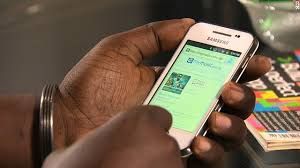A report by the International Data Corporation (IDC), has predicted that about 3.2 billion people across the world will have access to internet in 2016. This represents about 44 percent of the world’s population.
According to the report, more than 3 billion of this number will be using mobile devices to connect to the internet.
The report studied how the World uses the internet and using the information gotten, predicted what internet users will be doing online in 2016.
The report said China, India, and Indonesia will be the nations to account for almost half of the gains in internet access globally over the course of the next five years.
It said lower cost of devices and inexpensive wireless networks will drive internet accessibility growth in countries with populations that could not previously afford internet services.
The study predicted that the total number of mobile internet users will increase by 2 per cent annually through 2020, unless significant new methods of accessing the internet are introduced into the market.
It also reveals that efforts are being made by Google, SpaceX, and Facebook among others to make the Internet available to the remaining 4 billion people via high altitude planes, balloons, and satellites.
However, it says it still remains unclear how successful these endeavours will be and when they will be operational at scale.
”Over the next five years global growth in the number of people accessing the internet exclusively through mobile devices will grow by more than 25 per cent per year, while the amount of time we spend on them continues to grow,”
Program Director, Strategic Advisory Service at IDC, Scott Strawn said.
He said the study, which measures what internet users are doing online shows that many activities are enjoyed by billions of people.
“For example, more than a billion people use the Internet to bank online, to stream music, and to find a job,”
he continued.
“More than two billion use email and read news online. And more people than ever before are making purchases online,”
he said.
“These purchases are enabled by online payment platforms that are making payments, on and offline easier and more secure,’’
he added.



